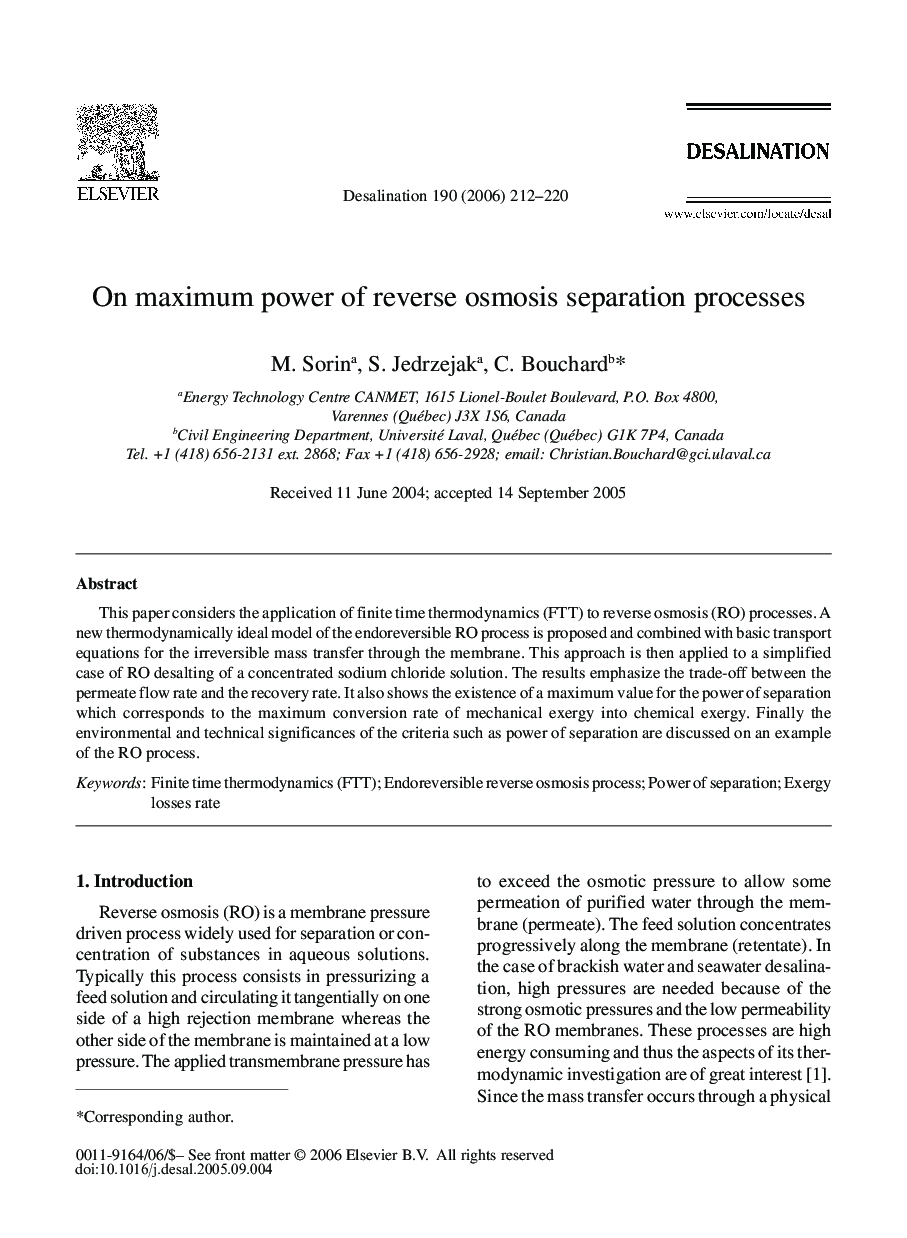| Article ID | Journal | Published Year | Pages | File Type |
|---|---|---|---|---|
| 629093 | Desalination | 2006 | 9 Pages |
This paper considers the application of finite time thermodynamics (FTT) to reverse osmosis (RO) processes. A new thermodynamically ideal model of the endoreversible RO process is proposed and combined with basic transport equations for the irreversible mass transfer through the membrane. This approach is then applied to a simplified case of RO desalting of a concentrated sodium chloride solution. The results emphasize the trade-off between the permeate flow rate and the recovery rate. It also shows the existence of a maximum value for the power of separation which corresponds to the maximum conversion rate of mechanical exergy into chemical exergy. Finally the environmental and technical significances of the criteria such as power of separation are discussed on an example of the RO process.
